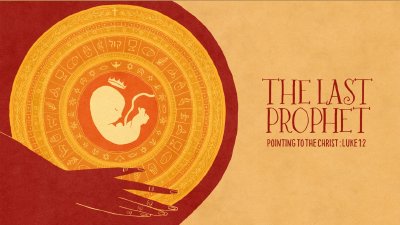Advent! The world literally means, coming. That is, the coming of God into the world. This Sunday marks the beginning of our celebration of Advent at St. Patrick; and, especially if you are new, I can’t wait for you to journey with us the next four weeks leading up to Christmas. It is a time of obvious joy and celebration. I mean, if you can’t celebrate the coming of God in our flesh, what can you celebrate? But it is also a time of reflection and examination because we ponder the second coming of Jesus as well.
When I was growing up, we took a more subdued view of this month-long enactment of God’s coming, at least at church! We celebrated Christmas with relish in our home, but at church the festivity was limited to a few Christmas carols, a sermon on the Incarnation, and a little decoration. Our reasoning was, we should celebrate the coming of Jesus all the time, and too much falderal and excess would be a distraction. One day of hoopla was enough.
The only problem with that is our imaginations will not allow us to minimize the magnitude of the sublime, or memorialize the most memorable moments of our lives. For instance, birth, death and marriage are all rather mundane events if looked at from the fact that all of us were born, all of us will die, and most of us will get married. And yet, try as we might, we can’t brush over a birthday without cakes, silly hats, treasure hunts, and gathering all our friends and relatives around. For weddings, we spend lavish amounts of money, prepare an extravagant feast, and make it a huge celebration. Funerals are the same, except in a more somber remembrance. We don’t quietly bury the dead. We have to gather together publicly, dress in drab clothing, weep together, and hallow the passing with a meal.
Why? It is because of our nature. We are not saying our little child is special only on this one day of the year, heaven forbid. But we tend to forget, as we chase multiple children around in the endless cycle of feeding, clothing, and cleaning up after them. So we set aside times of ceremony to sort of remind ourselves of what is true all the time.
So when it comes to celebrating the Incarnation of Jesus, a fact that is just as true in June as it is in December, why all this fuss? Why all this festooning of the church, this gilding the lily with trees, candles, wreaths, and garland? Is this mere play-acting? No, and here is the reason. I will let Tom Howard explain it: The answer is to be found in the profoundest mysteries of our humanness. Of course the Lord is here. Of course one needs to keep moment-by-moment account of one’s heart, so to speak. But as we have seen in the case of birth, marriage, and death, somehow ceremonializing what is true does have the effect of assisting us. We are not seraphim, who, we are told, can gaze unblinkingly at reality all the time. We have to come at it by fits and starts. To enact something by an act of will does turn out to have its effect in our hearts. If the principle were false, then the early Christians would have been mistaken to have gathered on Sundays to mark the Resurrection. Somehow the weekly ceremony brought home to them what they believed hourly and daily. (Tom Howard, Evangelical is not Enough)
During this time of remembrance at St. Patrick, our liturgy is different and our messages sound the note of what happened over two thousand years ago that—in the fullness of time—Jesus came. We are pondering this from the first chapter of Luke’s gospel, and this week we look at the least preached text of all the birth narratives of Jesus. It is about the time an ordinary parish priest went to the temple and got the surprise of his life! With no expectation of children, he was told by an angel not just that he was having a child. No, he got the pregnancy news, the gender reveal, the naming, the upbringing, and career of this child—all in one throw.
I can’t wait to begin this journey with you again. This never gets old! If it has for you, join us and we will help you brush off the Scrooge-ness and enjoy the feast!







